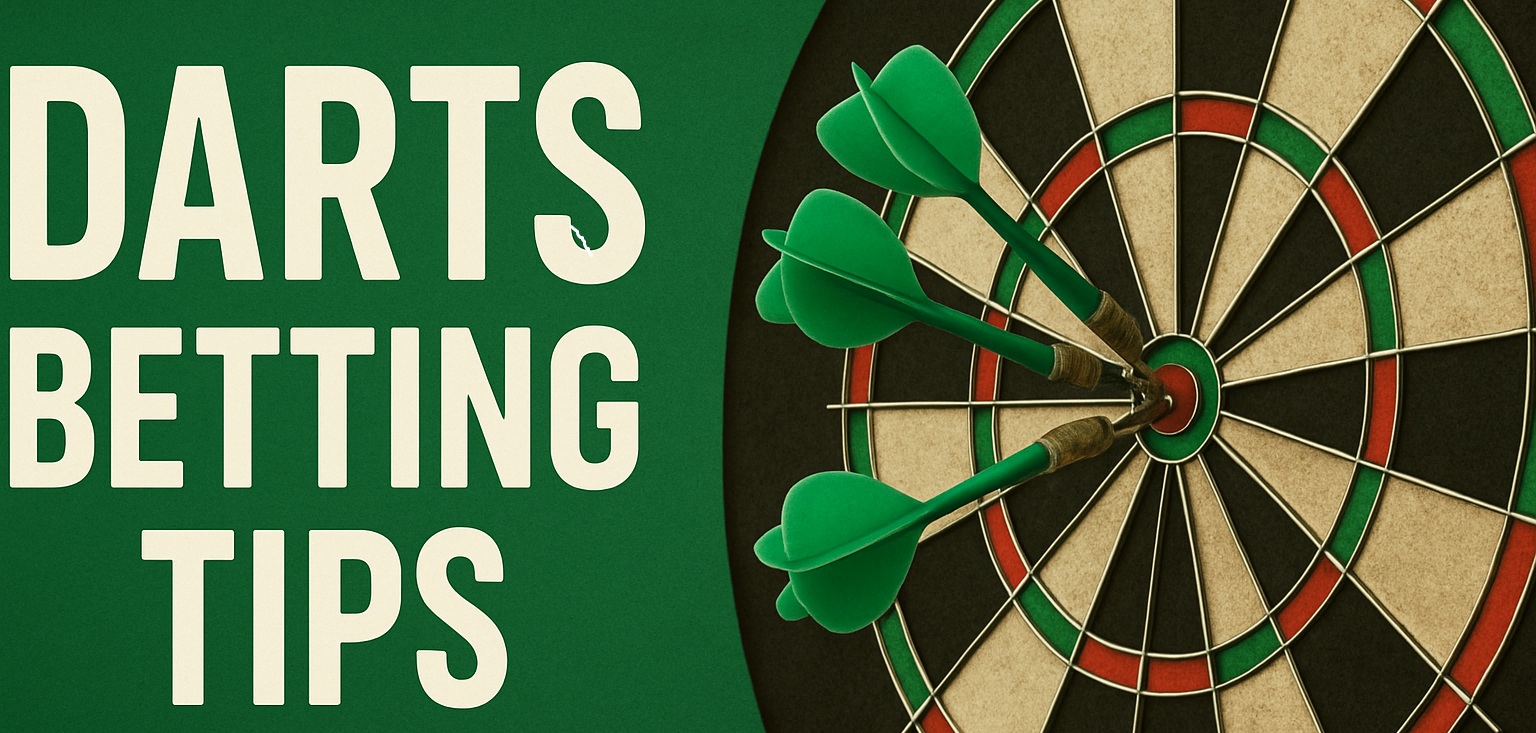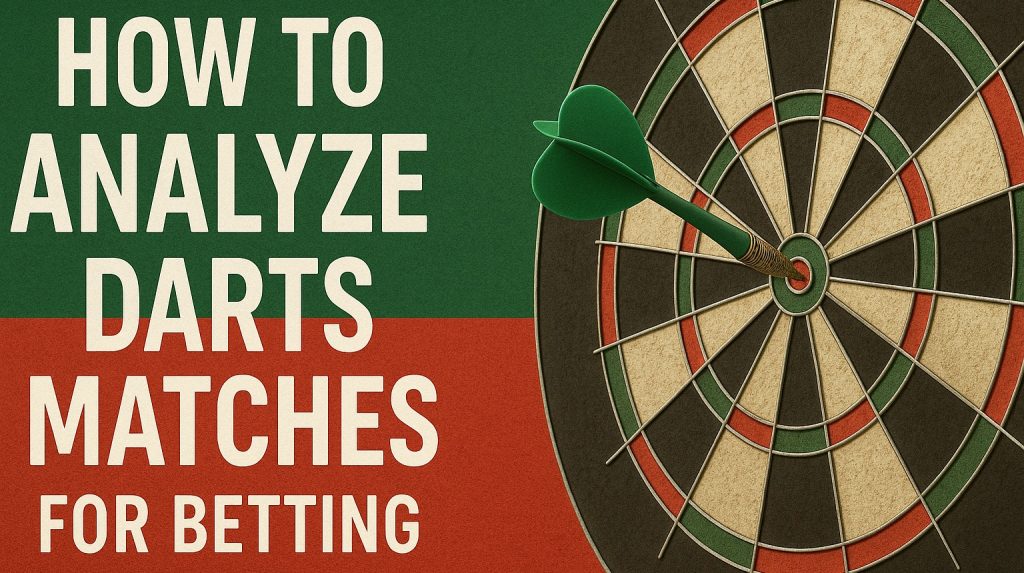
Darts has evolved from a pub pastime into a fiercely competitive sport, attracting a dedicated betting audience. The fast-paced nature of matches, combined with the precision required to win, makes it an exciting market for punters. Unlike many sports where momentum shifts gradually, darts can change in an instant—one perfect checkout or a missed double can decide an entire match. This unpredictability, paired with a format that allows for deep statistical analysis, creates a unique betting landscape where sharp bettors can spot value beyond just backing favorites.
The UK has long been the beating heart of professional darts, but its betting appeal has expanded globally, especially with the rise of televised events and high-profile tournaments like the PDC World Championship and Premier League Darts. The sport’s structure, with short formats and intense one-on-one battles, makes it ideal for in-play betting, where odds fluctuate rapidly with every thrown dart. Whether it’s predicting match winners, total legs, or checkout percentages, darts tips betting rewards those who can balance instinct with data-driven analysis.
Darts Betting Strategy (Darts Betting Guide)
Betting on darts has grown significantly in recent years, thanks to major tournaments, improved player statistics, and wider sportsbook coverage. A smart darts betting strategy requires understanding player form, scoring patterns, tournament structure, and situational factors that influence match outcomes. Below is a practical darts betting guide designed to help both beginners and experienced bettors make more informed decisions.
Darts betting strategy focuses on understanding player form, consistency, and match dynamics to identify value in the betting markets. Successful darts bettors study recent performances, scoring averages, checkout percentages, and head-to-head history to anticipate how players match up under pressure. Because darts is a momentum-driven sport, analyzing a player’s mental toughness and ability to handle big stages, such as PDC majors, is essential.
A smart darts betting guide recommends looking beyond simple win/lose outcomes and exploring markets like total 180s, highest checkout, handicap lines, and correct score betting. Specialists often target players with strong three-dart averages and reliable doubles, as these metrics translate into long-term success. Understanding venue factors and tournament formats also plays a key role, since set-play events differ significantly from match-play structures. Managing your bankroll, avoiding emotional bets, and seeking value rather than favorites are core principles in any effective darts betting strategy.
Main Darts Betting Tips
Every dart thrown carries statistical weight, from 180 counts to checkout consistency, and smart bettors know that past performances on certain stages matter as much as recent form. Whether it’s predicting match winners, total legs, or highest checkouts, strategic analysis beats gut instinct. Let’s break down the key betting markets and the best ways to approach them.
Match Winner (Moneyline/1X2)
Betting on the match winner is the most straightforward market, where you simply pick which player will win. While favorites often prevail, upsets are frequent in darts, especially in shorter formats. Understanding head-to-head records, recent form, and player consistency under pressure is crucial when placing a bet.
| Matchup | Head-to-Head Record | Recent Form (Last 5 Matches) | Odds (Favorite/Underdog) |
|---|---|---|---|
| Michael van Gerwen vs. Peter Wright | van Gerwen leads 10-4 | W-W-L-W-W | 1.50 / 2.75 |
| Gerwyn Price vs. Jonny Clayton | Price leads 7-6 | L-W-W-L-W | 1.80 / 2.20 |
Handicap Betting
Handicap betting gives an advantage or disadvantage to a player, often in terms of legs or sets. This market is useful when a strong favorite has low odds but is expected to dominate. For example, a -2.5 leg handicap means the player must win by at least 3 legs.
| Player A vs. Player B | Average Winning Margin | Handicap Line | Suggested Bet |
|---|---|---|---|
| Michael Smith vs. Dirk van Duijvenbode | Smith wins by 3+ legs on average | Smith -2.5 legs | Smith -2.5 legs |
| Dimitri Van den Bergh vs. Rob Cross | Tight matches, often going the distance | Van den Bergh +1.5 legs | Van den Bergh +1.5 legs |
Over/Under Total Legs/Sets
Instead of picking a winner, bettors can wager on whether the total number of legs or sets played will be over or under a bookmaker’s line. Matches between evenly matched players often result in longer contests, while dominant performances lead to shorter games.
| Matchup | Average Legs Per Match | Over/Under Line | Suggested Bet |
|---|---|---|---|
| Luke Humphries vs. Nathan Aspinall | 18.2 legs | Over 17.5 | Over 17.5 |
| Michael van Gerwen vs. James Wade | 16.1 legs | Under 17.5 | Under 17.5 |
Correct Score
Predicting the exact score of a match is a high-risk, high-reward market. This is best used when players have a history of consistent match score patterns or when a clear favorite is unlikely to drop more than a set.
| Matchup | Most Common Scoreline | Suggested Bet | Odds |
|---|---|---|---|
| Michael Smith vs. Peter Wright | 3-1 | Smith to win 3-1 | 3.75 |
| Rob Cross vs. Jonny Clayton | 3-2 | Clayton to win 3-2 | 4.50 |
Highest Checkout
This market involves betting on which player will achieve the highest checkout score in a match. Players who are strong finishers or frequently attempt high checkouts (such as 170) offer good value in this market.
| Player | Average Highest Checkout | Most Frequent Checkout Ranges | Suggested Bet |
|---|---|---|---|
| Gerwyn Price | 140+ | 120-170 | Over 140.5 Checkout |
| Michael van Gerwen | 125+ | 110-160 | Over 125.5 Checkout |
Most 180s
Some players specialize in heavy scoring, consistently hitting maximum 180s. Betting on the player with the most 180s requires analyzing scoring consistency, playing style, and match length.
| Matchup | Average 180s Per Match (Last 10) | Suggested Bet |
|---|---|---|
| Luke Littler vs. Michael Smith | Littler: 6.8, Smith: 7.2 | Smith to hit more 180s |
| Gary Anderson vs. Chris Dobey | Anderson: 5.1, Dobey: 6.0 | Dobey to hit more 180s |
Live Betting
Live betting allows bettors to react to in-match momentum shifts, which are frequent in darts. For example, if a player starts slowly but has a history of strong comebacks, betting on them to win the next set or increase their checkout percentage can be profitable.
| Live Betting Scenario | Player Strengths | Recommended Bet |
|---|---|---|
| Michael van Gerwen loses the first set but is known for comebacks | Wins 75% of matches after losing the first set | Bet van Gerwen to win live at better odds |
| Gerwyn Price struggling early but improving doubles | Strong finisher under pressure | Bet Price to win the next set |
Darts betting offers a mix of straightforward and complex markets, allowing bettors to find value based on player form, scoring patterns, and match dynamics. Match winner and handicap bets are great for predicting dominant performances, while highest checkout and most 180s markets suit those who analyze individual playing styles. Live betting provides opportunities to capitalize on momentum shifts, making darts one of the most exciting sports to wager on.
Key Darts Tournaments for Betting
- PDC World Darts Championship – The biggest event in darts.
- BDO World Darts Championship – History and betting opportunities.
- Premier League Darts – Weekly betting potential.
- UK Open, Grand Slam of Darts, World Matchplay – Other major events.
- European Tour & Players Championship – Regular betting opportunities.
How to Analyze Darts Matches for Betting

Success in darts betting isn’t just about recognizing a player’s talent—it’s about understanding the deeper layers of the game, where psychology, pressure, and precision dictate outcomes. While rankings offer a starting point, the real insight comes from analyzing performance trends, mental resilience, and playing styles that shape every match.
- Player Form & Head-to-Head Records – Recent form isn’t just about wins and losses—it’s about how a player wins or loses. A streak of high checkouts and 180s signals confidence, while shaky doubles suggest potential struggles. Head-to-head records reveal hidden dynamics. Some matchups bring out the best in a player, while others expose weaknesses, regardless of rankings.
- Tournament Pressure & Stage Experience – Some players thrive under the bright lights, while others falter when the stakes rise. A proven track record in major tournaments often outweighs a hot streak in smaller events. Final-leg deciders, tiebreak performances, and handling of crowd pressure are key indicators of a player’s ability to handle crunch moments.
- Checkout Percentage & Scoring Consistency – Big scores (180s) may excite, but finishing ability wins matches. Players with a high checkout percentage are more reliable when closing out legs. Scoring consistency matters. A player who regularly throws 95+ averages without major dips is often a safer bet than one with sporadic brilliance.
- Playing Style & Match-Ups – Aggressive, fast-paced players can disrupt methodical, slower opponents—but only if they maintain accuracy. Left-handed vs. right-handed matchups, rhythm differences, and preferred pace of play can create unexpected advantages or disadvantages.
- Crowd & Venue Factors – A home crowd can be a weapon or a burden—some players thrive off the energy, while others crack under the noise.Venue size, stage setup, and even temperature can subtly affect a player’s comfort level, impacting their rhythm.
Understanding these factors elevates betting from instinct to strategy. Data, psychology, and situational awareness separate smart wagers from hopeful guesses, giving bettors an edge in an unpredictable yet deeply analytical sport.
Example: Michael van Gerwen vs. Gerwyn Price
Let’s analyze a hypothetical PDC Premier League matchup between Michael van Gerwen and Gerwyn Price, two of the biggest names in darts, and apply the key betting factors discussed earlier.
- Player Form & Head-to-Head Records
Recent Form: Van Gerwen has won 4 of his last 5 matches, averaging 101.2 per game with a checkout percentage of 42%. Price, on the other hand, has been inconsistent, winning only 2 of his last 5 matches, with a checkout percentage of 38%.
Head-to-Head Record: Van Gerwen leads 20-9 in their last 29 meetings, showing clear dominance in this rivalry. However, Price has won 3 of their last 5 encounters, suggesting he has recently adapted to Van Gerwen’s style.
- Tournament Pressure & Stage Experience
Van Gerwen has a history of excelling in high-stakes matches, winning multiple Premier League titles and performing well in finals. Price, while a former World Champion, has struggled in Premier League formats, often faltering in semi-finals.
- Checkout Percentage & Scoring Consistency
Van Gerwen has been more reliable on doubles, finishing at 42% efficiency, compared to Price’s 38%. Price, however, hits more 180s per match (4.8 vs. 4.2), which could favor him in Over 180s betting markets.
- Playing Style & Match-Ups
Van Gerwen plays an aggressive, high-tempo game, which can unsettle opponents. Price, known for his slow, methodical rhythm, can struggle against faster players. If Van Gerwen dictates the pace, he gains a psychological edge.
- Crowd & Venue Factors
If played in the UK, the crowd typically favors Van Gerwen, boosting his confidence. Price has shown a tendency to react negatively to crowd hostility, especially against popular players.
- Match Winner: Van Gerwen to win (based on superior form, consistency, and H2H dominance).
- Handicap Betting: Van Gerwen -2.5 legs (Price struggles in Premier League knockouts).
- Most 180s: Price to hit more 180s (higher average).
- Checkout Market: Van Gerwen Over 120.5 Checkout (strong finisher in big moments).
This breakdown showcases how to dissect a darts match beyond simple rankings or recent wins, using form, psychology, and play style to guide smarter betting decisions.
Darts Betting Tips Today
The Premier League Darts continues tonight at the 3Arena in Dublin. The lineup features several high-stakes matches:
- Michael van Gerwen vs. Stephen Bunting – Insight: Van Gerwen, known for his aggressive playstyle, faces Bunting, who is seeking his first win of the season.
Betting Tip: Consider betting on Van Gerwen to win, but Bunting may cover a +2.5 leg handicap.
- Luke Littler vs. Gerwyn Price – Insight: Littler, the teenage sensation, is coming off his first Premier League night win. Price, last week’s winner, aims to maintain momentum.
Betting Tip: This match could be closely contested; betting on over 11.5 total legs might offer value.
- Nathan Aspinall vs. Rob Cross – Insight: Aspinall faces Cross, who squandered a 5-1 lead against Littler last week.
Betting Tip: Aspinall’s consistency makes him a favorite, but consider betting on Cross to win at least one set.
- Michael Smith vs. Chris Dobey – Insight: Smith, known for his high scoring, takes on Dobey, who has shown resilience in recent matches.
Betting Tip: Betting on Smith to hit the most 180s could be a profitable option.
Free Darts Betting Tips vs. Premium
Free darts betting tips are great for casual bettors looking for basic predictions and general insights. These typically include match winner picks, simple over/under bets, and player form analysis based on recent performances. While free tips can highlight trends and key matchups, they often rely on widely available stats and bookmaker odds, making it difficult to find true betting value.
For serious punters, premium betting insights provide a deeper level of analysis. These include detailed player statistics, checkout efficiency trends, in-play betting strategies, and sharp money movements. Premium services often track historical performance on specific tournament stages, psychological factors, and odds shifts, giving bettors a competitive edge. While they require an investment, premium insights can help identify undervalued markets, strategic in-game betting opportunities, and higher-return wagers that casual bettors might overlook.


